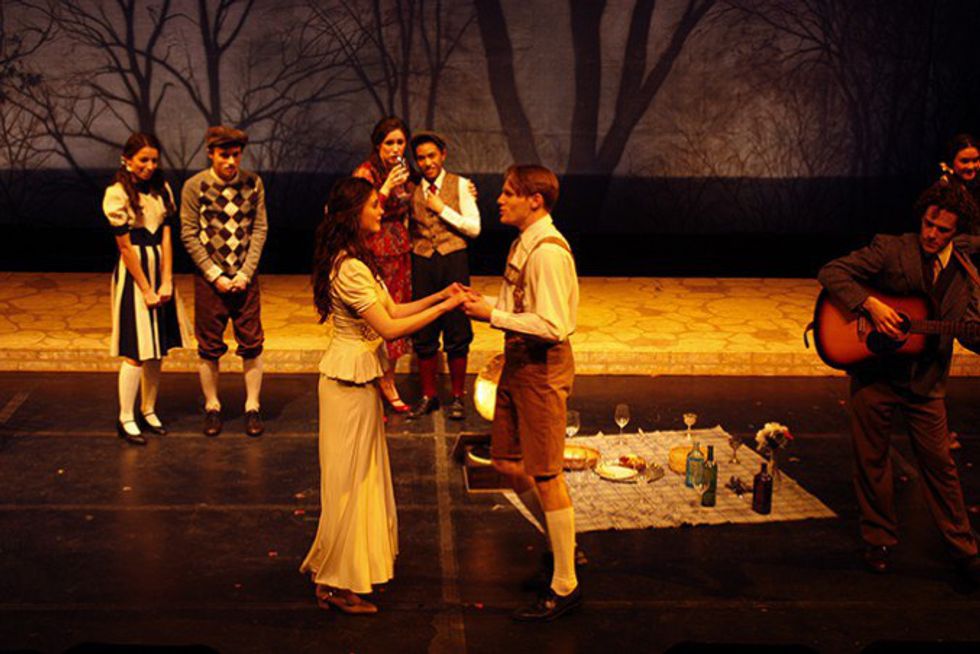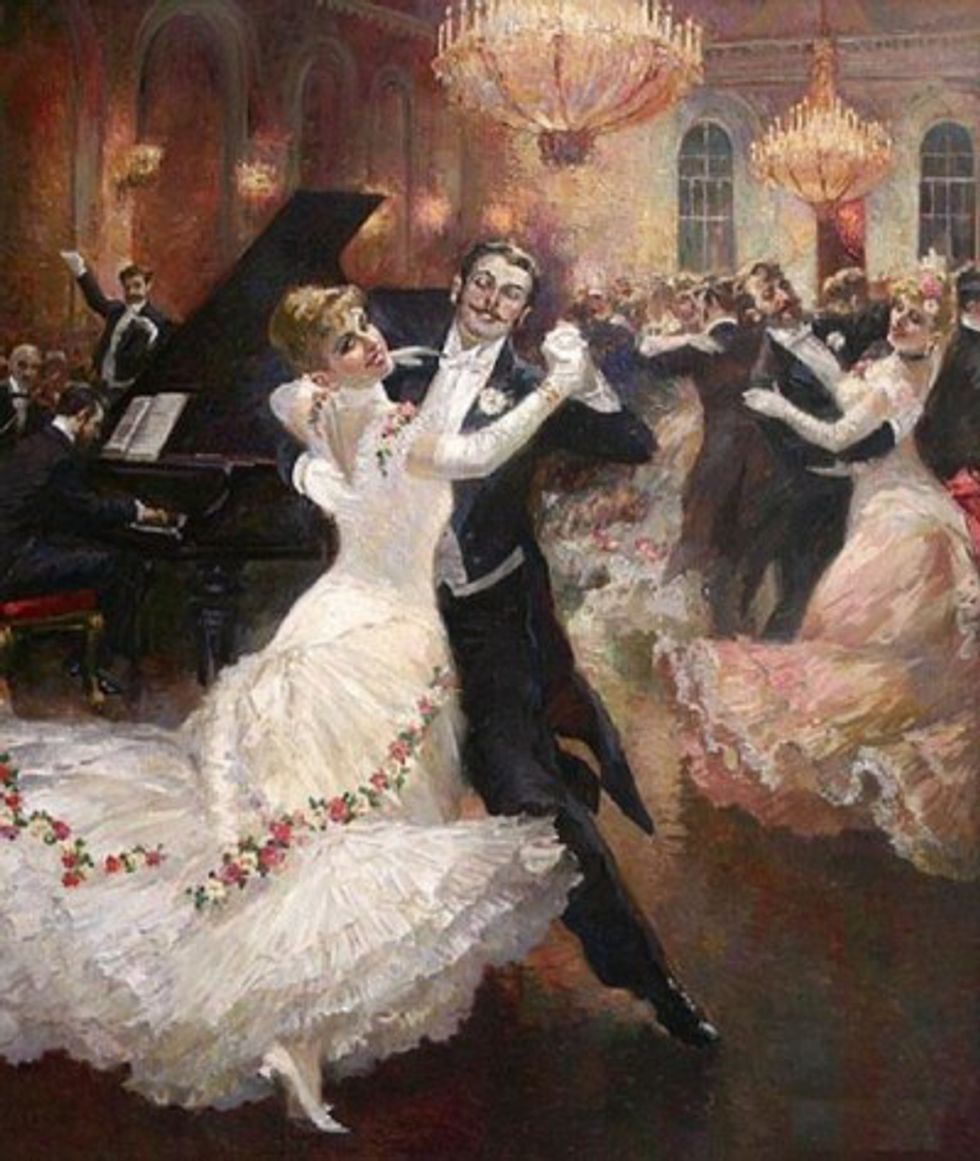Before I delve into my analysis of "Tales from the Vienna Woods," which I saw last year, how many of you have actually gone to see a play on or off Broadway? If you haven't, then you're missing out. The first play that I saw was "Billy Elliot," and it was simply spectacular. We didn't have the best seats, but I was there and that's all that mattered to me. Plays have been around for so long, dating from before Shakespeare's time, and yet still they remain current and entertaining. "Tales from the Vienna Woods" is a play that I saw at City College, and although it was not on Broadway, it was spectacular.
In "Tales from the Vienna Woods," written by Odon Von Horvath, the director, David Willinger, shined a light on human behavior in post-World War I Austria/Germany and also on techniques used by Von Horvath and Bertolt Brecht, a German poet, playwright, theorist and theater director. Willinger’s production of "Tales from the Vienna Woods" was a naturalistic production, and as a result, human behavior was reflected onto the stage in order to emphasize certain characteristics or ideas. Many of the problems that were depicted in the play and the way in which the actors responded to them can be called a reflection of what sometimes happens in the real world. On the other hand, there were times when the actors moved in an exaggerated manner. For instance, when Alfred and Ferdinand (Alfred’s friend) met to play pool, they circled each other using large steps and then went near each other and made hissing noises. This may be a method the Willinger used to draw the audience’s attention; however, people do not normally hiss at each other, and therefore, that was one un-naturalistic aspect of the production.
In his “Notes from the Director,” David Willinger mentioned Bertolt Brecht and his development of “alienation technique.” Brecht created the theory of “alienation technique” to make the audience know at all times that they were watching a play and to make them aware that they were watching a reflection of reality instead of reality itself. David Willinger employed this “alienation technique” by placing the audience in such a way that they were on two sides of the stage and they could also see other members of the audience; the fact that the audience could constantly see other audience members was a constant reminder to them that the people on stage were acting, and this made the audience analyze the ideas represented and the actors’ actions rather than get lost in the story. In addition, since the audience was distanced in this way from the production, it was more apparent that the performance was a reflection of the real world, but that it was not actually a part of the real world except as a performance. As I was watching the play, not only was I watching the characters on stage, but I was also able to watch the changing expressions of other people watching the play; this made me think more about what was happening on the stage, and I was able to judge if others had similar responses. Director Willinger’s decision to place the audience on two sides of the stage gave the audience the ability to watch the stage, to gauge the responses of others in the audience, to question the play and to better understand it from a distanced perspective.
By choosing to direct this play, David Willinger made the audience aware of the subject of domestic abuse in post-World War I Austria/Germany and its parallels in the twenty-first century. In "Tales from the Vienna Woods," the butcher, Zauberkonig (Marianne’s father), and other characters discussed hitting women as if it was nothing serious or out of the ordinary. During those moments in the play, the fact that the audience was not only seeing the performance but also seeing the other audience members reminded them that what they were watching was indeed a performance and gave them reason to think about the issue of domestic abuse in 1930s Austria/Germany and, most importantly, in the world today. The configuration of the stage and audience used the “alienation technique,” as mentioned before, to distance the audience emotionally from the performance. Therefore, the audience was not caught up in their emotional responses, but in the messages and ideas, like abuse and gambling, that were represented in the play. The use of the “alienation technique” allowed the audience to question and analyze the play and the actors more easily than if the audience was just on one end of the stage, rather than on both sides of the stage.
After watching Willinger’s production of "Tales from the Vienna Woods," one thing that caught my attention was that the play seemed to represent a world in which there were many contrasting events and ideas. For example, even though Alfred was a gambler and he often had to borrow money to gamble and did not make large profits from gambling, he was always jumping about from one place to another, and he often walked with a swagger. These traits are characteristic of people that have reasons to be happy or proud, but they showed up in Alfred, who had no known reason to be happy or proud. Also, the colors that were used in the play contrasted with some of the messages and themes that were presented in the play; bright colors were used even though ideas like gambling, abuse and prostitution were presented. In his "Notes from the Director," Willinger wrote that “…traditional values of polite behavior paradoxically coexisted with a corrosive dog-eat-dog ethic, creating a yawning gulf between peoples’ words and their actions.” Therefore, it is my belief that David Willinger interpreted not only the play, but the time period as one where the actions, words and outer appearances of people did not often match their true intentions or their circumstances in life.
Director David Willinger’s interpretation of "Tales from the Vienna Woods" illustrated that people and their words and actions in Post-World War I Austria/Germany were often inconsistent. He represented this idea of paradoxical actions and words with the actions of the actors and even with the colors that were used for the costumes and set with the themes represented in the play. Willinger’s production emphasized the paradoxes in the play, explored the idea of domestic abuse and allowed the audience to not only watch the play but also question the ideas represented in the play.
Attending a play is not just about seeing the characters prance about the stage and interact with each other. It is what you take away that matters most. Otherwise, you would have spent your money for entertainment that you can easily get by watching the television. Next time you go see a play, think about why the characters behaved the way they did and the possible reasons behind the director's choices. Instead of going to watch a movie next time, go see a play. Maybe you'll like it or maybe you won't, but you'll never know until you try it.

























